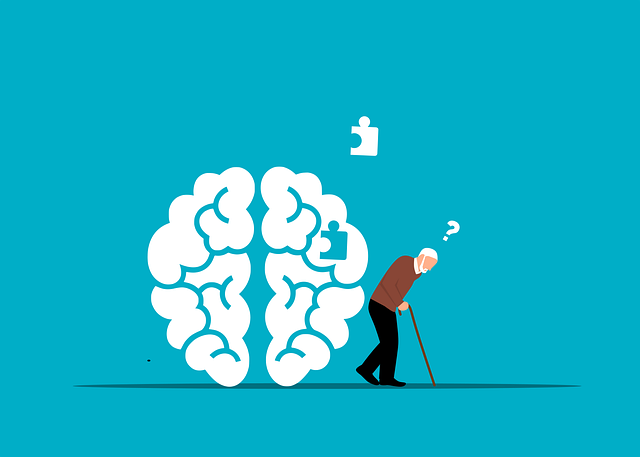Harm Minimization Planning: Safeguarding Clients at Northglenn Developmental Disability Therapy
Northglenn Developmental Disability Therapy (NDDT) prioritizes client safety through a multi-faceted…….
Welcome to an in-depth exploration of a transformative approach to therapy that has garnered global attention—Northglenn Developmental Disability Therapy. This comprehensive article aims to guide readers through the intricate world of this therapeutic method, its impact on individuals with developmental disabilities, and its growing influence worldwide. By delving into various facets, we will uncover how Northglenn Therapy not only enhances quality of life but also contributes to a more inclusive society.
Definition: Northglenn Developmental Disability Therapy (NDDT) is an innovative and holistic therapeutic framework designed to support individuals with developmental disabilities, including autism spectrum disorder (ASD), intellectual disability, and other related conditions. It focuses on fostering personal growth, improving functional skills, and promoting independence.
Core Components:
Historical Context: The roots of NDDT can be traced back to the late 20th century when pioneers in developmental disabilities research sought more effective interventions. Over time, it evolved from traditional behavior modification techniques to a more person-centered approach, incorporating elements from various therapeutic traditions. Today, NDDT is recognized as an evidence-based practice, backed by numerous studies demonstrating its positive outcomes.
NDDT has transcended geographical boundaries, leaving a significant impact worldwide. Its global influence can be attributed to several key factors:
| Region | Impact and Trends |
|---|---|
| North America | The United States and Canada have been at the forefront of NDDT’s development and adoption. Here, the therapy has seen widespread implementation in schools, community centers, and private practices, serving diverse populations with developmental disabilities. |
| Europe | European countries like the UK, Germany, and Sweden have embraced NDDT, adapting it to their unique healthcare systems. The focus is on early intervention and community-based services, with successful integration into national health policies. |
| Asia | In countries like Japan and South Korea, NDDT has gained traction in addressing the growing needs of an aging population with developmental disabilities. Cultural adaptations have been made to align with local practices and beliefs. |
| Global Online Presence | The digital revolution has enabled the global exchange of knowledge about NDDT. Online platforms and conferences facilitate collaboration among therapists, researchers, and families worldwide, fostering a rich network of support. |
The economic landscape surrounding NDDT is complex, involving various stakeholders and considerations:
Technology has revolutionized NDDT, offering innovative ways to enhance treatment outcomes:
Policies and regulations play a pivotal role in governing NDDT practices worldwide:
Despite its many successes, NDDT faces challenges that require continuous improvement and innovative solutions:
Emma, a young woman with ASD, struggled with social interactions and communication. Through NDDT, she learned social skills and developed strategies to navigate everyday conversations. With the support of her therapist and family, Emma gradually built confidence in public settings. She now actively participates in community events, joins youth groups, and has made lasting friendships, demonstrating improved quality of life and enhanced independence.
The Tokyo Metropolitan Government launched an innovative NDDT program focused on community integration. This initiative aimed to reduce the institutionalization rate of individuals with developmental disabilities by providing comprehensive support in their homes and local communities. By collaborating with schools, recreational centers, and family networks, the program achieved significant success, leading to improved social inclusion and reduced isolation.
In a remote village in India, NDDT was introduced using digital tools to overcome geographical challenges. Therapists utilized video conferencing for regular sessions with a young boy with intellectual disability. Along with his parents, he engaged in interactive activities and learned essential skills. This case highlights how technology can expand access to therapy in underserved areas, fostering positive development despite physical distances.
The future of NDDT is filled with promising possibilities and emerging trends:
Northglenn Developmental Disability Therapy has emerged as a powerful force in transforming lives and building inclusive communities. Its holistic approach, backed by extensive research, has shown remarkable success in enhancing the well-being of individuals with developmental disabilities. As NDDT continues to evolve, it will undoubtedly shape the future of disability support services worldwide, ensuring that everyone has the opportunity to reach their full potential.
Q: What types of developmental disabilities does NDDT address?
A: Northglenn Developmental Disability Therapy is designed for a wide range of conditions, including autism spectrum disorder (ASD), intellectual disability, Down syndrome, cerebral palsy, and other related disorders.
Q: How do I know if NDDT is right for my child?
A: If your child has been diagnosed with a developmental disability and you are seeking comprehensive therapy to support their growth and development, NDDT could be an excellent choice. Consult with specialists to determine the best course of action for your child’s unique needs.
Q: Can NDDT help adults with developmental disabilities?
A: Absolutely! NDDT is not limited to children. It can benefit adults with developmental disabilities by improving their functional skills, social interactions, and overall quality of life.
Q: Are there any side effects or risks associated with NDDT?
A: Like any therapeutic approach, NDDT has minimal risks when delivered by qualified professionals. The primary risk is the potential for misdiagnosis or inappropriate therapy planning, which can be mitigated through comprehensive assessments and ongoing monitoring.
Q: How can I find a qualified NDDT therapist near me?
A: You can start by contacting local community health centers, developmental disability organizations, or schools that offer special education services. Online directories and referrals from healthcare providers can also help you locate certified NDDT therapists in your area.

Northglenn Developmental Disability Therapy (NDDT) prioritizes client safety through a multi-faceted…….